Nosferatu (2024): is this the best version? | ¿esta es la mejor versión?
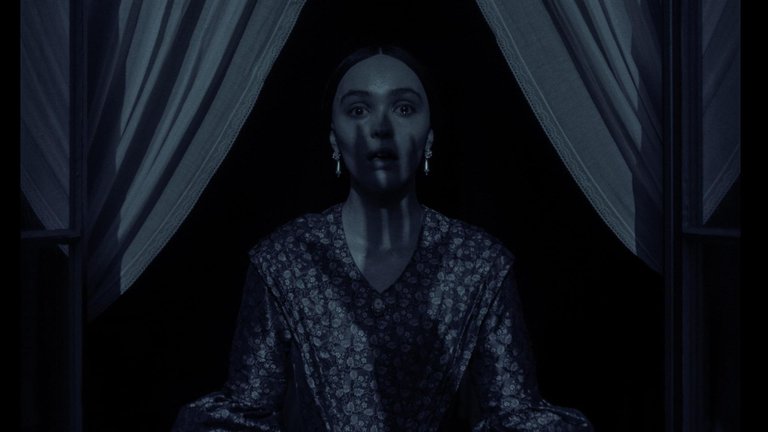
In the entire history of the Oscars, there are few horror films that have been recognized with nominations and awards in the different categories and until last year only six of them had been nominated for the award of the night, that is, for Best Picture: The Exorcist, Jaws, The Sixth Sense, The Silence of the Lambs, Black Swan and Get Out. This year The Substance is nominated for the main award, but there's another horror film with 4 nominations in other categories, the most recent version of this vampire classic: Nosferatu.
En toda la historia de los Oscar son pocas las películas de terror que han sido reconocidas con nominaciones y premios en las diferentes categorías y hasta el año pasado sólo seis de ellas habían sido nominadas al premio de la noche, es decir, a Mejor Película: The Exorcist, Jaws, The Sixth Sense, The Silence of the Lambs, Black Swan y Get Out. Este año The Substance está nominada al premio principal, pero hay otra película de terror con 4 nominaciones a otras categorías, la versión más reciente de este clásico de vampiros: Nosferatu.
The latest film by Robert Eggers, who writes and directs it, is the remake of the remake of the remake of the... in short, a story with a thousand versions. You probably already know that the first film with the title Nosferatu was released more than a century ago, in Germany in 1922. That version by F.W. Murnau was a silent film - let's remember that sound cinema didn't arrive until 1927 - and presented us for the first time with the story of this vampire with a strange name and an obsession for a woman. Then, 55 years later, in West Germany, Werner Herzog made a remake of this story with the participation of Bruno Ganz (the magnificent Adolf Hitler of Der Untergang) but with some changes. In that version we saw that instead of the names from Murnau's film, now others appeared, such as Van Helsing... wait a minute, isn't that a character from Bram Stoker's novel Dracula? And yes, Nosferatu is (almost) the same story of Stoker's book, so if we add the adaptations of one and the other, it ends up being one of the novels with the largest number of versions on the big screen. Now, without wishing to detract from what these two German directors have done or to downplay the importance of what their films represented in their respective moments, I must say that I didn't like either of these versions. I don't think it's a period issue because I've seen and enjoyed films from decades earlier and almost a century old, but both versions bored me and the main thing: they didn't scare me. Not one bit. Some versions of Dracula have been better, but overall reading the novel is a sensation that has no comparison whatsoever to those two films.
La última película de Robert Eggers, quien la escribe y la dirige, es el remake de remake del remake del... en fin, una historia con mil versiones. Seguramente ya saben que la primera película con el título de Nosferatu se estrenó hace más de un siglo, en la Alemania de 1922. Esa versión de F.W. Murnau era una película muda - recordemos que el cine sonoro no llegó hasta 1927 - y nos presentó por primera vez la historia de este vampiro de nombre extraño y una obsesión por una mujer. Luego, 55 años más tarde, en la Alemania Occidental, Werner Herzog hizo un remake de esta historia con la participación de Bruno Ganz (el magnífico Adolf Hitler de Der Untergang) pero con algunos cambios. En esa versión vimos que en lugar de los nombres de la cinta de Murnau, ahora aparecían otros, como Van Helsing... un momento, ¿ese no es un personaje de la novela Drácula de Bram Stoker? Y es que sí, Nosferatu es (casi) la misma historia del libro de Stoker, así que si sumamos las adaptaciones de una y otra, termina siendo una de las novelas con mayor número de versiones en la gran pantalla. Ahora bien, sin ánimo de desmeritar lo hecho por estos dos directores alemanes ni de restar importancia a lo que sus películas representaron en sus respectivos momentos, debo decir que ninguna de esas versiones me gustó. No creo que sea un tema de época porque he visto y disfrutado películas de décadas anteriores y de hace casi un siglo de antigüedad, pero ambas versiones me aburrieron y lo principal: no me dieron miedo. Ni un poco. Algunas versiones de Drácula han sido mejores, pero sobre todo la lectura de la novela es una sensación que no tiene ningún tipo de comparación con esas dos películas.
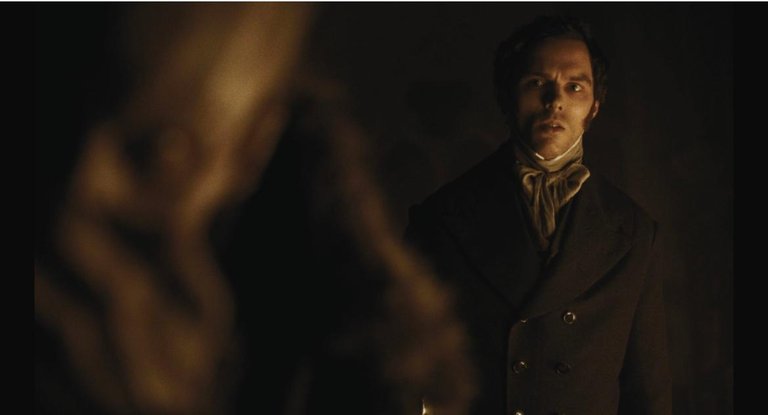
But this time I had a little more confidence because it was a version of Robert Eggers, a man who amazed the world of cinema with The Witch, who surprised me even more with The Lighthouse and who achieved greater notoriety with The Northman, that epic drama that is a kind of Nordic Hamlet, in which although I missed some of his most cryptic particular stamp, I enjoyed above all the performances, the landscapes and the music. It may be the one I like the least of his first films, but its quality is indisputable.
Pero esta vez tenía algo más de confianza porque se trataba de una versión de Robert Eggers, un hombre que maravilló al mundo del cine con The Witch, que a mí me sorprendió aún más con The Lighthouse y que consiguió mayor notoriedad con The Northman, ese drama épico que es una especie de Hamlet nórdico, en la que si bien extrañé algo de su sello particular más críptico, disfruté sobre todo por las actuaciones, los paisajes y la música. Quizás sea la que menos me guste de sus primeras películas, pero su calidad es indiscutible.
Now, with Nosferatu, Eggers returns to his favorite genre, horror, and manages to pay tribute to the original film, but above all to Stoker's novel, while adding much of his own vision, which is not easy to do when dealing with a classic of this level. The central corpus of the film is the same: the real estate employee who is given the task of bringing a contract to the house of a mysterious nobleman who lives in an inhospitable region of the Carpathian Mountains; the journey to the place, the feeling of insecurity, the fear; the obsession of this strange character with the agent's wife; the plague; the cursed origin of the nobleman... all that appears in all the versions. But this time Eggers allows himself to give more depth to the plot by giving a past to the relationship between the girl and the vampire and a more carnal dimension as well, to put a term to it. And unlike the German versions, Eggers does achieve a frightening film, in good part thanks to the appearance of this Count Orlock (the name of Dracula in this adaptation) but mostly to the great performances of Lily-Rose Depp, Nicholas Hoult (accompanied by Aaron Taylor-Johnson, Willem Dafoe and Emma Corrin), and Bill Skarsgård's incarnation of the mythical vampire. This time Skarsgård disappears under the makeup, prosthetics, that cadaverous look and a deeper-than-normal voice that he managed to project thanks to his training with an opera singer. When one must think of a creature hundreds of years old that feeds on human blood, this Eggers version of a vampire is far more realistic and plausible than any other vampire I've seen on screen. Take that Edward Cullen.
Ahora, con Nosferatu, Eggers vuelve a su género predilecto, el terror, y logra rendir tributo a la película original, pero sobre todo a la novela de Stoker y a su vez agrega mucho de su propia visión, lo que no resulta fácil de hacer tratándose de un clásico de este nivel. El corpus central de la película es el mismo: el empleado inmobiliario a quien le es encomendada la tarea de llevar un contrato a la casa de un misterioso noble que vive en una región inhóspita de los Cárpatos; el viaje hasta el lugar, la sensación de inseguridad, el miedo; la obsesión de este extraño personaje con la esposa del agente; la peste; el origen maldito del noble... todo eso aparece en todas las versiones. Pero en esta oportunidad Eggers se permite darle mayor profundidad a la trama dándole un pasado a la relación entre la chica y el vampiro y una dimensión más carnal también, por ponerle algún término. Y a diferencia de las versiones alemanas, Eggers sí logra una película atemorizante, en buena parte gracias a la apariencia de este Conde Orlock (el nombre de Drácula en esta adaptación) pero sobre todo a las grandes actuaciones de Lily-Rose Depp, Nicholas Hoult (acompañados por Aaron Taylor-Johnson, Willem Dafoe y Emma Corrin), y a la encarnación de Bill Skarsgård del mítico vampiro. En esta oportunidad Skarsgård desaparece debajo del maquillaje, las prótesis, ese aspecto cadavérico y una voz más grave de lo normal que logró proyectar gracias a su preparación con una cantante de ópera. Cuando uno debe pensar en una criatura de cientos de años de vida que se alimenta de la sangre humana, esta versión de Eggers de un vampiro es mucho más realista y verosímil que cualquier otro vampiro que yo haya visto en la gran pantalla. Toma eso Edward Cullen.
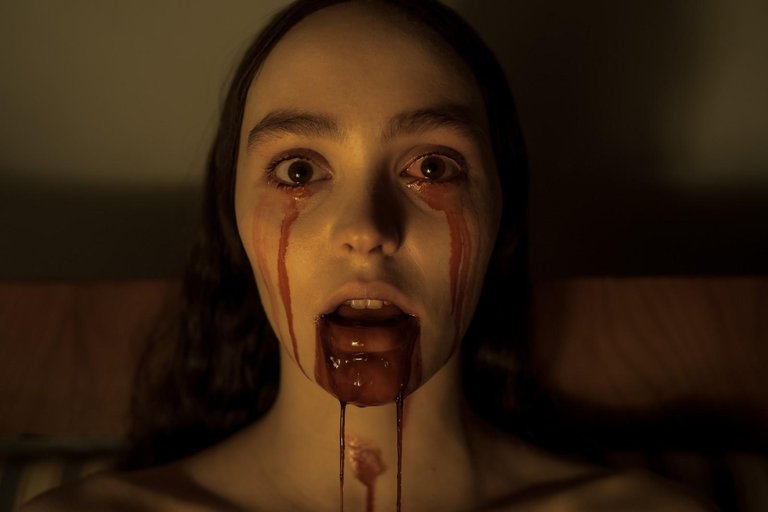
Nicholas Hoult also does very well in his role as Thomas Hutter, but in this version Thomas is not the knight-errant to the rescue of the damsel in distress that is his wife Ellen and that's why he doesn't have the same prominence that in this case is transferred precisely to the woman who is the object of the vampire obsession, played in a great way by Lily-Rose Depp. This Ellen is much more relevant than the previous ones and I think it was very clever to move the center of the plot to this woman's connection with the Count. I feel like that gives more strength to a script that makes much more sense thanks to Eggers' adjustments.
Nicholas Hoult también lo hace muy bien en su papel de Thomas Hutter, pero en esta versión Thomas no es el caballero andante al rescate de la damisela en apuros que es su esposa Ellen y por eso no tiene el mismo protagonismo que en este caso se traslada precisamente a la mujer objeto de la obsesión vampírica, interpretada de gran manera por Lily-Rose Depp. Esta Ellen es mucho más relevante que las anteriores y creo que fue muy inteligente trasladar el centro de la trama a la conexión de esta mujer con el Conde. Siento que eso le da más fuerza a un guion que tiene mucho más sentido gracias a los ajustes de Eggers.
I think Lily-Rose's performances as Ellen and Bill Skarsgård's performances as Count Orlock deserved more recognition and some nominations. I don't know if they are enough for the Oscars, understanding that only the five most outstanding performances of the year arrive at the gala, but I would include them among the best of 2024, without a doubt. Added to this is the very good script by Eggers, the costumes and makeup that are nominated for an Oscar as well as the impressive production design, but the strongest point of Nosferatu - in terms of technical aspects - is its cinematography. Jarin Blaschke has been in charge of this task in all of Eggers' feature films, he was already nominated for the Oscars for his work in The Lighthouse and this last year he has won several awards for his photography for Nosferatu, can he also win the Oscar? Now, the four nominations for this film were not enough - according to the Academy - to be nominated for Best Picture. A film that stands out in makeup, costumes, production design and photography, what does it need to be included among the best ten films of the year and be eligible for the night's award? If it's due to quantity of merits, it seems illogical that Eggers is absent from that category and that, instead, Nickel Boys is nominated, which barely has another nomination (for Best Adapted Screenplay), so I don't quite understand the Academy's criteria, or find them coherent, do you think Nosferatu should have been nominated for Best Picture at the Oscars? I read you in the comments.
Creo que las actuaciones de Lily-Rose como Ellen y la de Bill Skarsgård como el Conde Orlock merecieron más reconocimiento y algunas nominaciones. No sé si sean suficientes para los Oscars, entendiendo que a la gala llegan sólo las cinco actuaciones más destacadas del año, pero las incluiría entre las mejores del 2024, sin duda. A ello se suma el muy buen guion de Eggers, el vestuario y el maquillaje que están nominados al Oscar igual que el impresionante diseño de producción, pero el punto más fuerte de Nosferatu - en cuanto a lo técnico - es su cinematografía. Jarin Blaschke ha sido el encargado de esta tarea en todos los largometrajes de Eggers, ya fue nominado a los Oscars por su trabajo en The Lighthouse y este último año ha conseguido varios premios por su fotografía para Nosferatu, ¿podrá llevarse también el Oscar? Ahora bien, las cuatro nominaciones de esta película no le alcanzaron - según la Academia - para ser nominada a Mejor Película. Un film que destaca en maquillaje, vestuario, diseño de producción y fotografía, ¿qué necesita para estar incluida entre las mejores diez cintas del año y optar al premio de la noche? Si es por cantidad de méritos parece ilógico la ausencia de Eggers en esa categoría y que, en cambio, esté nominada Nickel Boys que apenas cuenta con otra nominación (a Mejor Guion Adaptado) así que no acabo de entender los criterios de la Academia, o de encontrarlos coherentes, ¿creen que Nosferatu debió haber sido nominada a Mejor Película en los Oscars? Los leo en los comentarios.
Reseñado por @cristiancaicedo
Other posts that may interest you | Otros posts que pueden interesarte:
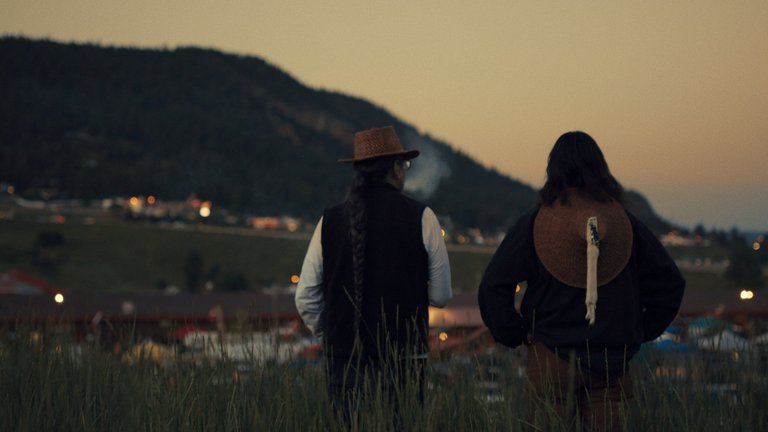 |
|
|---|---|
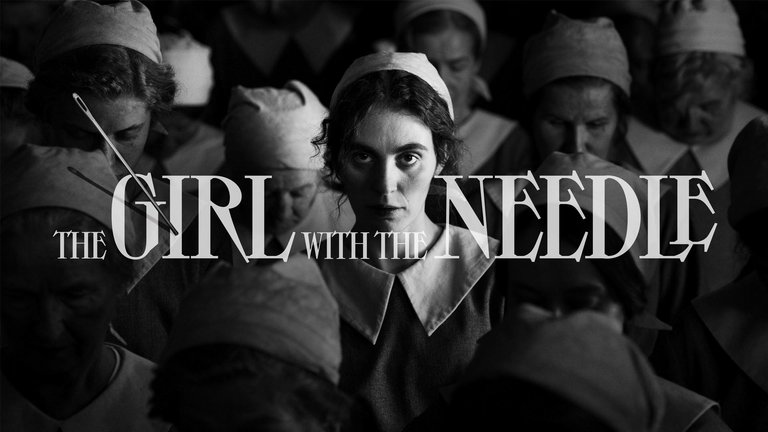 |
|
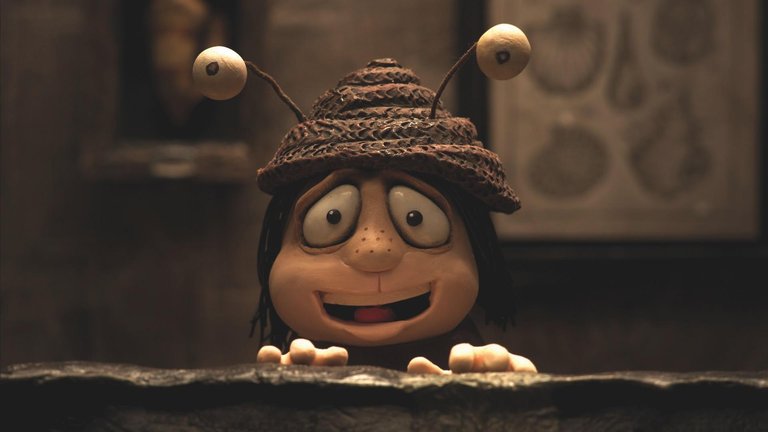 |
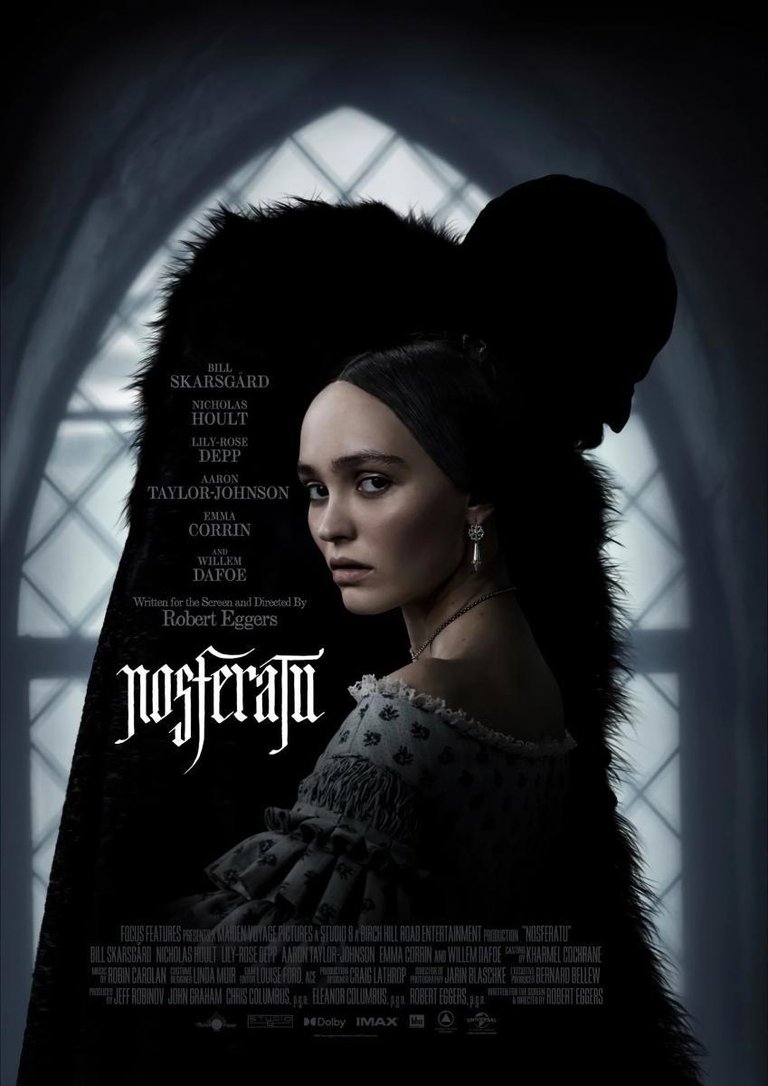
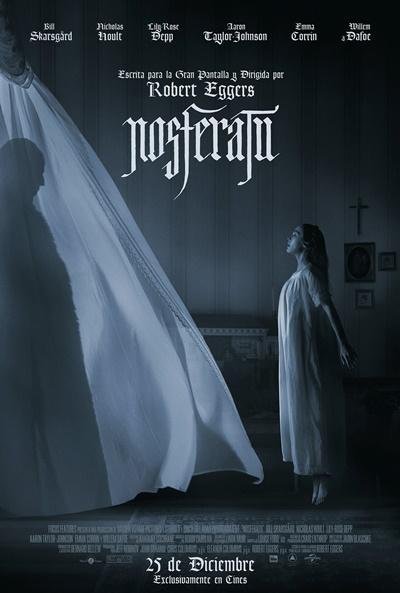

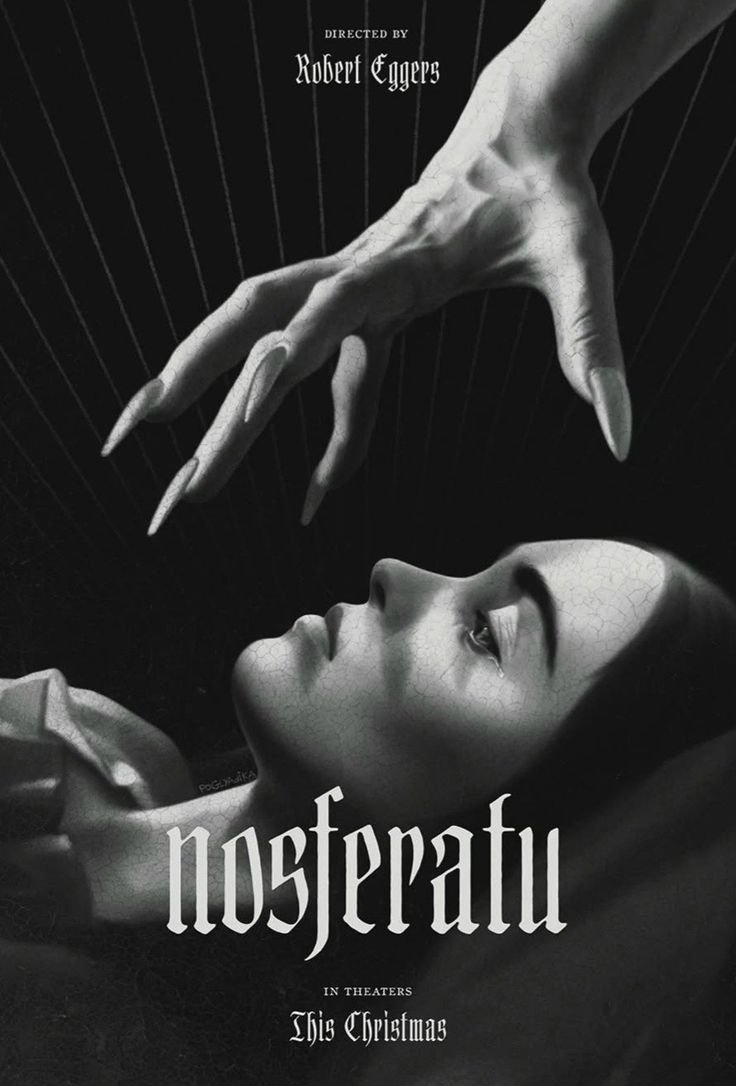
qué puedes esperar de los Oscars si nominaron a Emilia Perez como mejor película del año? (gracias a Dios no ganó) Esos premios están literalmente influenciados por el poder ecónomico de algunos directores.
En cuanto a esta versión fue cláramente un remake de aquella versión de 1922, lo que la hizo para mí, una obra de arte y no un remake del remake de remake.
Y lo otro que debo acotar, es que se nombró nosferatu para evitar los inconvenientes con los derechos de autor muy parecidos a la trama del legendario vampiro de todos los tiempos mejor conocido como Drácula. Saludos y que estés bien!
Buen aporte ese último que olvidé mencionar en mi post, muchas gracias por leerme y comentar.
Saludos.
Estoy completamente de acuerdo contigo. El director no solo reinterpretó (nuevamente) la historia original, sino que realmente aportó algo positivo para hacerla aún más profunda. Exploró mejor la motivación central por lo que se comprende mucho mejor todo el desarrollo. Aparte están las actuaciones que son excelentes. He visto a muchos criticar la de Depp pero yo estoy en desacuerdo, ella hizo exactamente lo que debía hacer, fue excelente.
En general, la considero una película gótica por excelencia
Coincido en la valoración del trabajo de Depp y en que es una excelente película gótica. Saludos y muchas gracias por compartir.
Personally, I did not enjoy the film, because I do not like the gothic genre, I did not like the rhythm of the film and especially the long-awaited Nosferatu I did not like, I hated his mustache.
But I must admit that the analysis of the aspects that you analyze in this post, are very valid, you have a lot of knowledge about this style and I think that it should have been taken into account more by the Academy, but the Academy unfortunately favored other films that were of very low quality, indefensible.
I understand that feeling about that mustache (xD)
Thank you so much for reading my post and sharig your opinion.
Greetings
While I enjoyed the film I agree with the Academy (for once) for not nominating this for Best Picture. It deserves its nominations for the other things but unless politically motivated like Black Panther was, movies of this sort can't really and shouldn't really be nominated for Best Picture. Is it a visual spectacle? Yes! Was the director's refusal to overuse CGI a good call? Absolutely! Are the costumes and acting top-drawer? Without question. Is it original? I think you already know the answer to that.
An enjoyable film sure, but not Best Picture worthy IMO.
Thank you so much for sharing your point of view. I respect you knowledge about cinema, your criteria, and you're right in your approach of this movie.
Among this year's nominees for Best Picture, which one is your favorite?
Aunque hay algunas cosas que no me convencieron , definitivamente es una película bellísima , la estética que crearon es hermosa y única , y estando acostumbrada a las grandes actuaciones de Nicholas y Bill , sabía que lo harían increíble, pero Lily me sorprendió , su actuacion la va a llevar a un nivel más alto , lejos de los papeles más pequeños que llevaba haciendo,pd tengo un meme ilustrado de Edward Cullen y nosferatu en mi reseña de la película ,jajaj definitivamente,el conde Orlok no le gustaría los vampiros que brillan